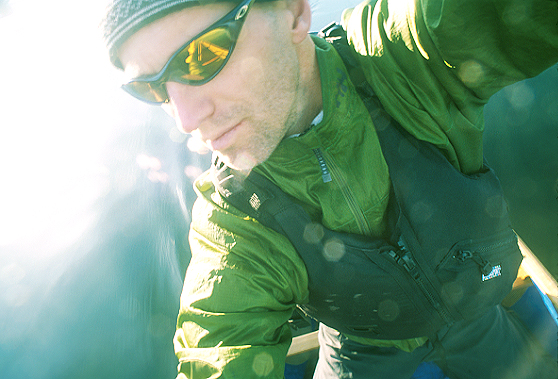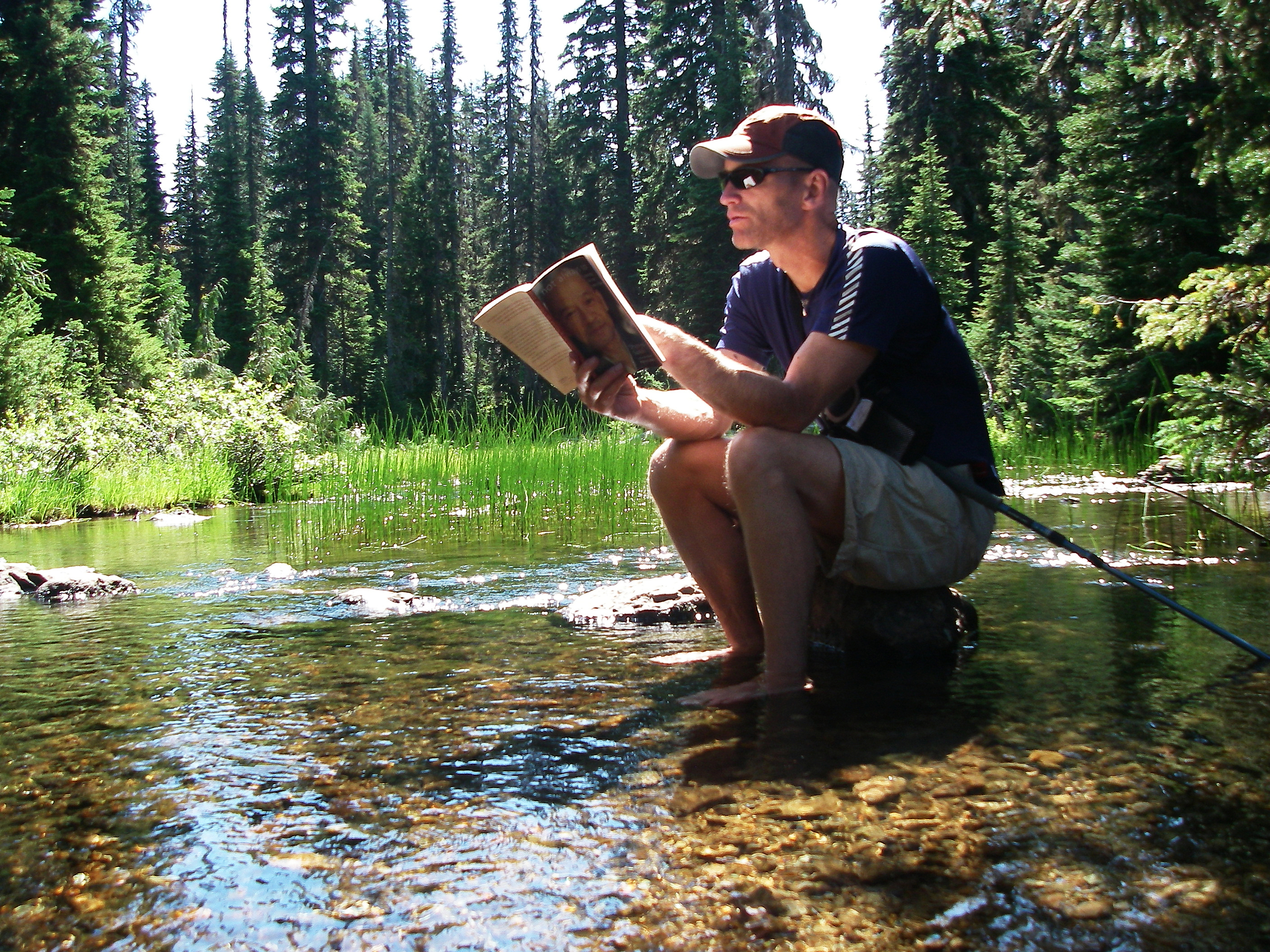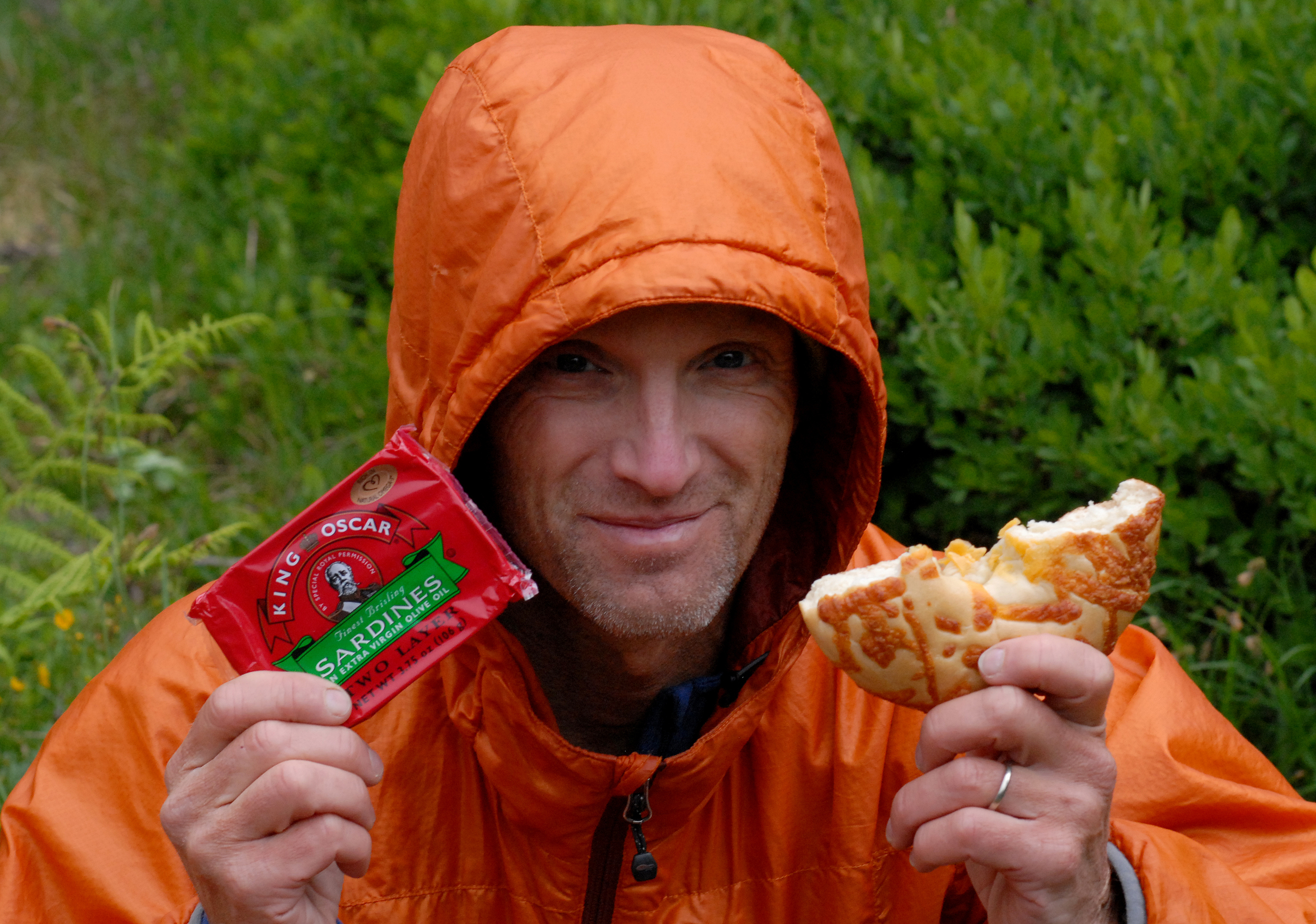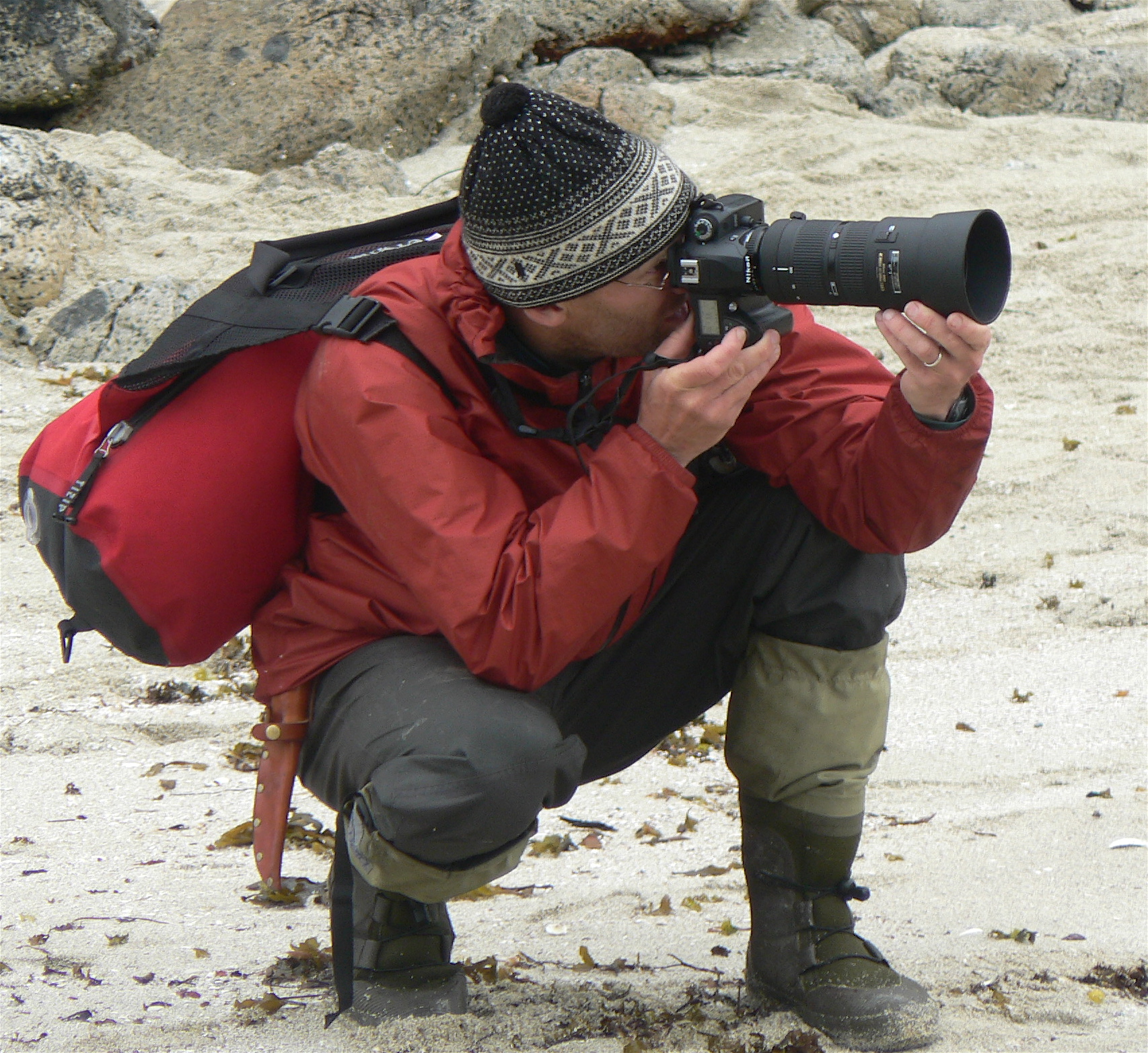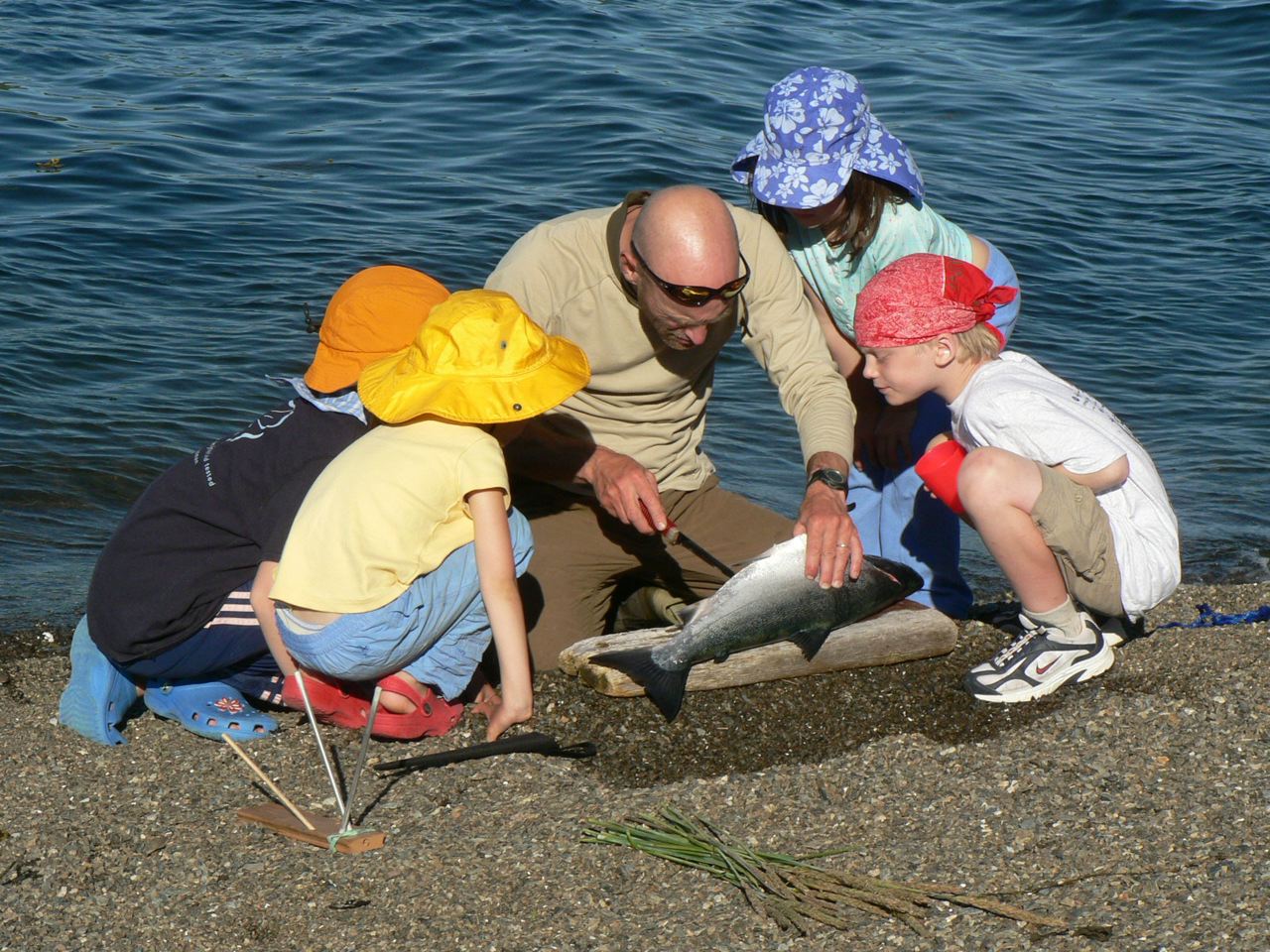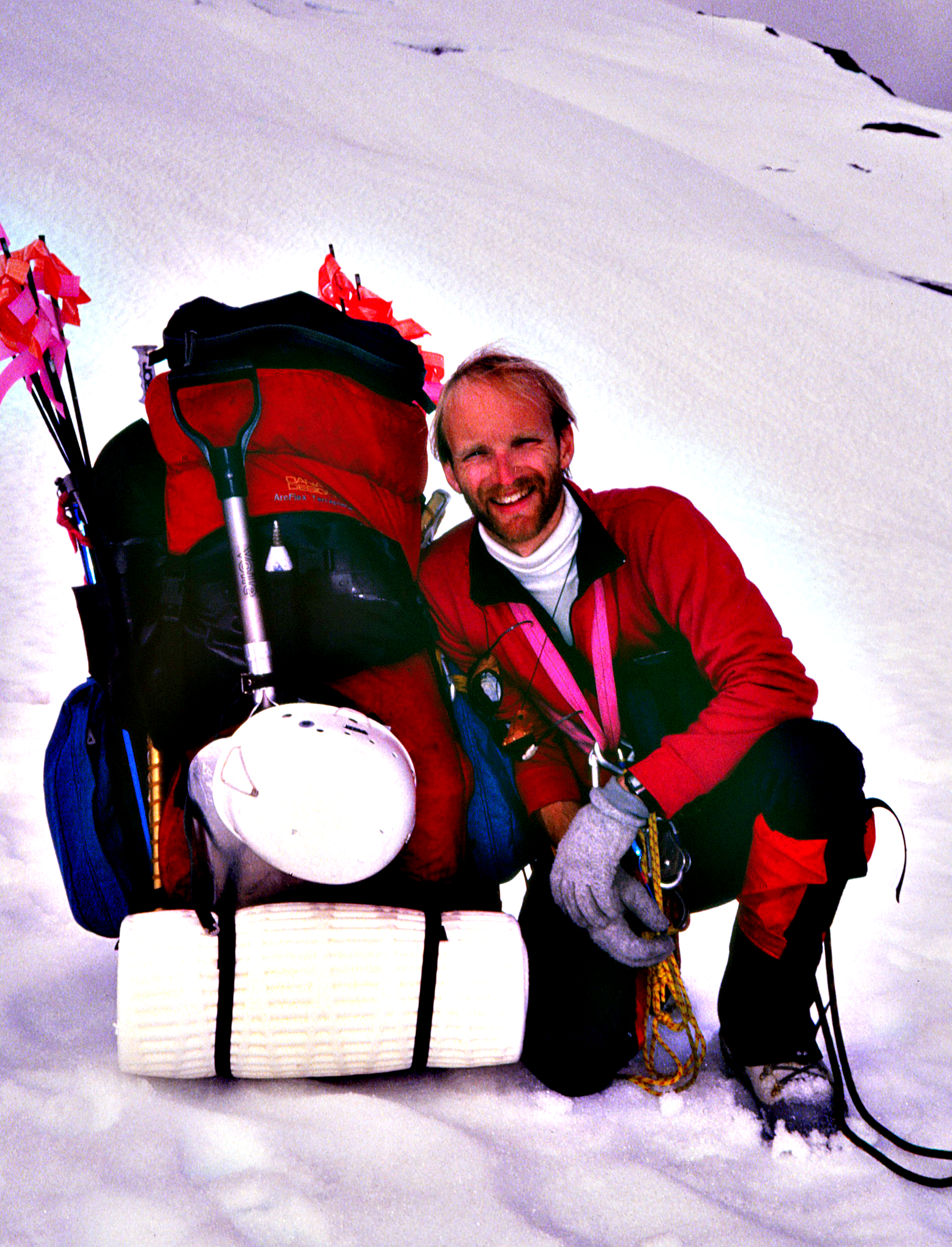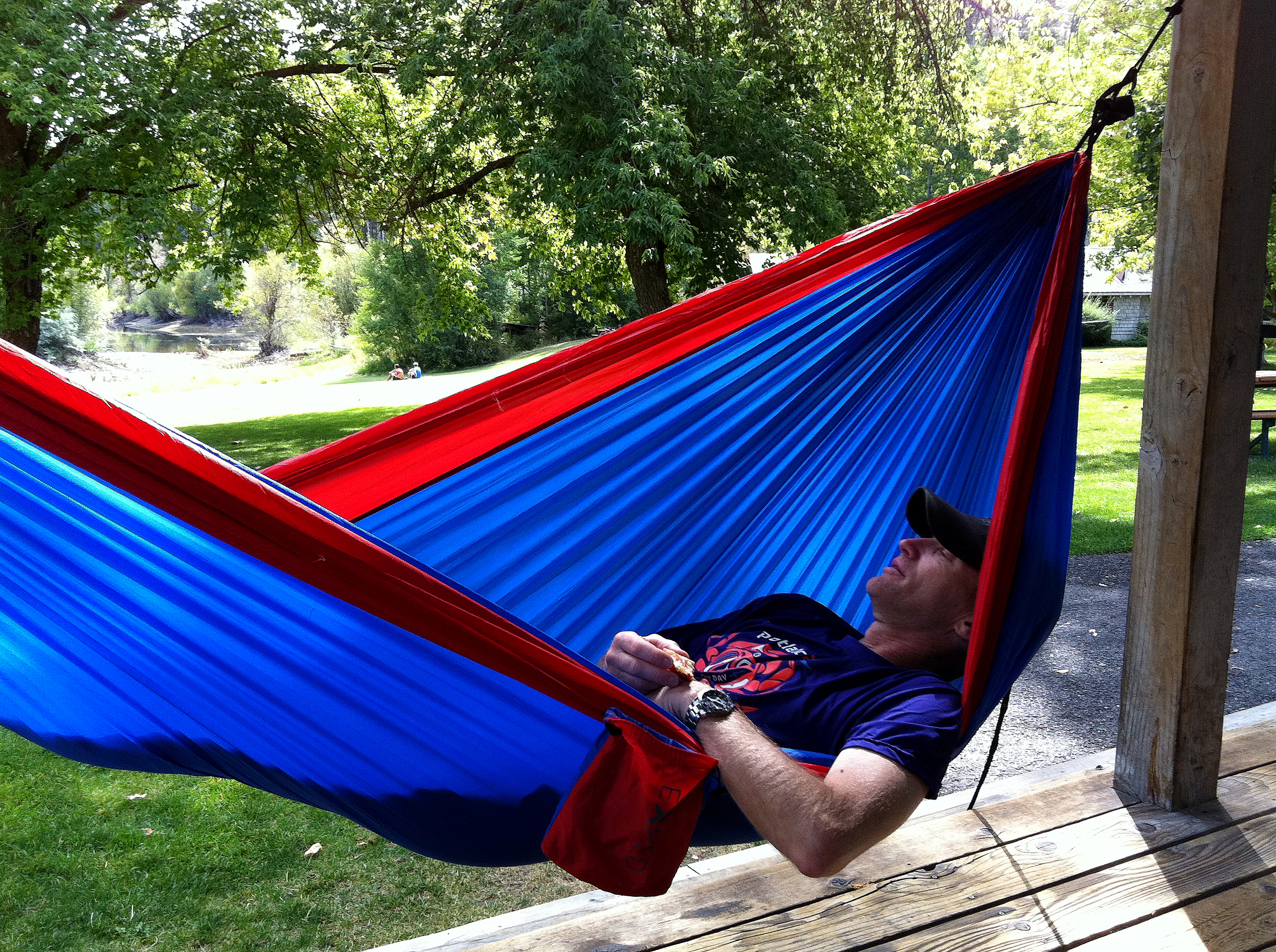Photo: Mikaela Steudel
Recently, I was interviewed by a wonderful writer for a profile piece on Roots Rated.com. Because no editor in their right mind would publish everything I say or write, the full text of my answers were, understandably, shortened. However, I do have a website and blog where I am my own (perhaps poor) editor. So here you go, the full monty:
When and how did you first get into paddling and adventuring?
My earliest memories are from when I was 5 years old, going with my dad on adventures. He had a folding kayak and we'd paddle and sail it in the waters around Seattle. He also got me out in the mountains. To this day the
smell of pine trees in the high alpine takes me right back to hiking with him to Camp Muir on Mt. Rainier. When my brother was old enough to join us we had many, many days of fishing together. It's a strong reminder that early experiences, supported by parents, can have a profound effect on a person's life.
Your entire professional career has been in the outdoor industry, tell me about that.
You know, I hear people say that you should do something for a living that doesn't feel like work. Well, that's how my professional life has been, thanks to the outdoor industry. I've been extremely fortunate to have worked with great people and brands over the years, starting with my first industry job in 1982 at a small Seattle-based custom pack company called Schonhofen Alpine Equipment. From there (after a short and shocking time at Big 5 Sporting Goods) I worked for 7 years at a Seattle outdoor shop called Swallows' Nest. That period of time, working every day to help people with their outdoor gear needs, left an indelible mark on me. I gained an appreciation for the value of treating people, and their individual needs, with respect. Good customer service is easy in concept but so hard to build into an organization and do consistently, but we built our shop reputation on exactly that. Those lessons have served me very well.
After Swallows' Nest I worked at Outdoor Research for 10 years over two tours of duty. In between I did some writing and sold my photography as well as consulted for several outdoor companies and had a really fun run at Helly Hansen. And now, since 2009, I'm working with Exped, a true-to-the-core, highly innovative brand populated
by great people. I don't see myself retiring any time soon, but I imagine when I do it will be with the Exped logo tattooed on my somewhat expansive forehead.
What is your favorite mode of adventure?
If you're asking which activity is my favorite, I realized long ago that I can't pick one. One day I'd answer backcountry skiing and the next it would be alpine mountaineering and on another day I'd say canoe or kayak. But I can say that my favorite circumstance is one of uncertainty. I like the feeling of not knowing the route or where the campsite will be or what obstacles will be in the way - as opposed to having the entire thing copied out of a guidebook. Some of my favorite trips have involved almost no information in advance. Several ski mountaineering trips in the mid 1990's in the Wrangell-St. Elias mountains, on both sides of the USA/Canada border, exemplify this. On a trip there in '93 I saw peaks in the distance that looked like they would be nice ski peaks. Back home I could find only provisional maps of the area and very little information in The American Alpine Journal. The pilot we flew with (Paul Claus) was always game to land us wherever we wanted to go and so we would find ourselves in spots that looked very different from what the map would show us.
That is my favorite mode - heart racing a little bit, the guarantee of adventure and good friends on the team. By the way, my definition of adventure is doing something for which the outcome is unknown. Yvon Chouinard has defined an adventure as occurring when something goes wrong (which is certainly true), but I prefer a slightly broader interpretation. It allows me to say things like "Wow! That was an adventurous meal!"
How has working at EXPED influenced you?
It has shown me how valuable a true and clear focus on innovation and quality can be. Exped is not a marketing-driven company, but rather the focus is on making the best, most innovative gear possible while respecting the people involved - from factory to specialty retailer to customer. We certainly love to tell the Exped story to the world (if not, I'd be out of a job), but the gear and the needs of outdoor adventurers are our first foot forward. I guess you could say that Exped keeps it "real." The Exped team understands that the truest brand story begins with making the best gear, with what we do. I think part of this is Exped's Swissness. In general, the Swiss aren't big on being boastful, so any marketing initiative that might twist the facts away from what is true just isn't going to see the light of day. It's very refreshing not having to worry about whether the story matches the reality of the brand.
At the heart of Exped are the owners, Heidi and Andi Brun, who have had an enormously positive influence on me. After over 30 years in the outdoor industry I'm probably a candidate for becoming an old curmudgeon, but Andi and Heidi help keep me aligned with true north, by example. They are very caring and honest people and have not lost their enthusiasm for work or play. Very special people and this is reflected in their company.
Tell me an Exped-related story.
My partners and I run the USA subsidiary of Exped, based in Seattle. In late October every year we travel to Switzerland to attend Exped's innovations meeting. Distributors from around the world spend a few days together, talking about all things Exped. Most companies would call this a sales meeting, but not Exped. Sure, we talk about the financial health of the company and the important things needed to keep the company prosperous, but that's not the main focus by any means. The bulk of the meeting is spent looking at how the gear is performing, how we can make it better and what new, innovative things are coming in the future. And we typically head into the Alps for a few days right after the meeting, where we use the gear and have some (not so) serious fun together. This usually involves making our way to a nice summit with views of iconic Swiss mountains and then hanging out in a hut sharing local cheese, bread, beer and maybe a bit of schnapps for digestion. For a little more about the importance of schnapps, check this out: http://www.kajbunephotography.blogspot.com/2013/11/the-schnapps-lecture.html
What has been your biggest challenge?
I think the biggest challenge over the years has been dealing with the loss of friendswho have been killed doing the activities they love. It is a harsh reality of adventureand, from recent experience, I've come to understand that it doesn't get any easier. The list of good and true adventurous people I miss in my life has grown too long. As Forrest Gump said, that's all I have to say about that.
Any interesting wildlife encounters?
Oh, man! Too many to count. We had some interesting bear encounters in 1990 on the approach to Mt. Fairweather from the beach. Being followed for several days by the rarely glimpsed glacier bear (sometimes called a blue bear) was memorable. Of course, paddling in the Pacific Northwest regularly serves up the possibility of encounters with marine life. We were fishing in empty canoes one afternoon and a grey whale was feeding nearby. It vocalized at one point and the sound carried through the boats and reverberated in our heads. We didn't realize right away that it was the whale. The whole experience had a mysterious quality and it sounded to me like a cloaked space ship had flown just over our heads! It only takes one of these moments to turn a person into a lifelong searcher for similar experiences.
I love that you've made adventure a family activity. Tell me a little about that.
Well, you used the all-important word that ties adventure and family together - love. When we've put these two great loves together, amazing things have happened. In 2007, our regular paddling group of 3 families (including 3 grandparents) made a very special trip along the central coast of BC. We did a point-to-point trip with a launch from the ferry on the inside passage. For two weeks we paddled along the wild outer coast and had a trip that sits right at the top of my favorite adventures. At the time my son was 8 years old and my dad was 77. Three generations in one sea-going canoe on a wild coast. Even though we've done many other trips together, that one was special. Every paddle stroke took us into new country and every camp was special. One evening we caught a 45 lb. halibut in the canoe - not something that happens every day! We've done many things as a family but for me the paddle trips are the gems. Everyone has fun, breathes the free air and finds themselves challenged.
What’s the scariest thing that’s happened to you in the outdoors?
The British mountaineer Sir Chris Bonington once said that there are two kinds of fear, fear for yourself and fear for others, and that the latter is much more potent. This has always been true for me. On that 2007 paddling trip on the central coast we had an extended moment - about 20 minutes or so - that was a bit hair raising. The crux of our trip was rounding a somewhat notorious point of land. As we approached we looked it over and decided it was a go. But pretty much exactly halfway through the seas got very big and there was reflection and chop on the water, current and nasty rocks on shore. What made it scary was the fact that we had kids and grandparents on board and the consequences of capsize...well...I don't like to think about it, let alone write about it. Let's just say that the moms in the group were, once we hit smooth water, somewhat vocal about their feelings. I'm not saying the dads and grandparents weren't concerned, but moms seem to have a cellular level reaction that is unmatched by any other person. Ever. I suppose this is how humans made it this far...
Why do you feel compelled to be outdoors, what drives you?
Ahh, yes, the question that lies at the heart of outdoor adventure - why? George Mallory (of Everest fame) famously answered that question with the line "Because it's there." But this has never been a very satisfying answer for me. I'm not sure I've figured out an ultimate answer, but along the way I've come to some helpful understandings.
For me, there are three main reasons I'm compelled to go into the outdoors: friendship, to be in nature, and to be in the moment.
For sure, getting to that point where I am completely in the moment is big for me, and outdoor activities are a good way for me to get there. One aspect of this, what I call the athletic singularity, has withstood my regular tests of its truth. It relates very closely to the idea of flow (from Wikipedia: Flow is the mental state of operation in which a person performing an activity is fully immersed in a feeling of energized focus, full involvement, and enjoyment in the process of the activity.) For me, flow is the same whether I'm paddling quietly along a calm lakeside, skiing the trees, or trail running. I find that I crave that singularity and strive to return to it.
This answer is, of course, too long and perhaps too touchy-feely for our culture. "Because it's there" is a much, much better sound bite. But you know, I wonder if George Mallory might actually have been referring to the human heart, not Mount Everest. "Because it's there, in my heart" or something like that. The state of flow is within me and I want to touch it again. Maybe that's what he meant.
Getting out into nature is another draw for me. It's easy for us humans to convince ourselves that we are the most important thing in the universe, especially when we are surrounded by technology and concrete and we're sitting on the couch. It's another thing altogether to be confronted by the full magnificence of the natural world. It is humbling and exhilarating at the same time, and going outside almost guarantees that our sense of wonder will be renewed.
“I look up at the night sky, and I know that, yes, we are part of this Universe, we are in this Universe, but perhaps more important than both of those facts is that the Universe is in us. When I reflect on that fact, I look up—many people feel small, because they’re small and the Universe is big, but I feel big, because my atoms came from those stars.”
The other thing, perhaps the best thing, about going on adventures is the camaraderie and friendships that are created and enhanced. Although I do like to go on solo trips occasionally, I much prefer to go with good friends and family. To share the feelings of awe and wonder, and to experience the flow and the challenges with good friends is priceless. After literally putting my life in someone's hands (on belay or roped up on a glacier, etc.) a very strong bond is created.
But here's the dangerous thing about being an amateur philosopher: too many words (see above). The other day I was discussing this topic with friends. They listened politely to my blah, blah, blah-ing and then one of them proceeded to sum it all up between quick sips of beer:
"Why do we go into the outdoors? It makes us happy."
What is on your to-do list?
Live to be 100 years old
Be as consistent and persistent an adventurer as my dad
Have fun in the outdoors with my son, for life
Oh, you were probably asking what trips I want to do. Hmm...everything! But that's not fair, so here's one that's always been interesting to me:
paddle the Inside Passage from Alaska to Seattle. Can you talk to my partners about me taking next summer off?
Do you adhere to any special diet?
I'm a fan of Michael Pollan and his approach to food. He writes that we should "Eat food. Not too much. Mostly plants." and that works well for me. Although, I must say that friends of mine will certainly point out that the not-too-much part is occasionally ignored. But my excuse is that an active lifestyle requires a little extra fuel. Always gotta have a few good excuses in the back pocket...
How does Haiku and photography tie into your outdoor adventures?
When I got into photography in junior high school I found a lifelong outlet for my creativity. Bringing the camera along on adventures seems to tie different parts of my life together and to capture a moment with others through the still image is cool. I'm new to haiku but find them amazing - they are very similar to the still image. They are snapshots of life, neatly packaged. But like photography, the more we contemplate them the more we see into the heart of the poet and the moment being shared. Photographs are limited by the frame and haiku are limited by the number of syllables used and I think that's what's interesting to me. The limited frame requires the poet/photographer to be careful about what is included and what is left out. And both are best when they are created in a spontaneous way, a bit like outdoor adventure itself, eh? It's so much fun!
Looking behind me
There above the stern, the moon
And two falling leaves.
What tips would you give?
I guess I'd pass along my favorite Zen saying: there's a difference between knowing the path and walking the path. Especially these days, we can see endless photos of a place and read detailed reports of places we'd like to visit, but to me what matters is that we walk out our door and do it - whatever it is. There is no substitute for actually walking the path and feeling the wind on your face and smelling those alpine trees. Go outside. Now.

